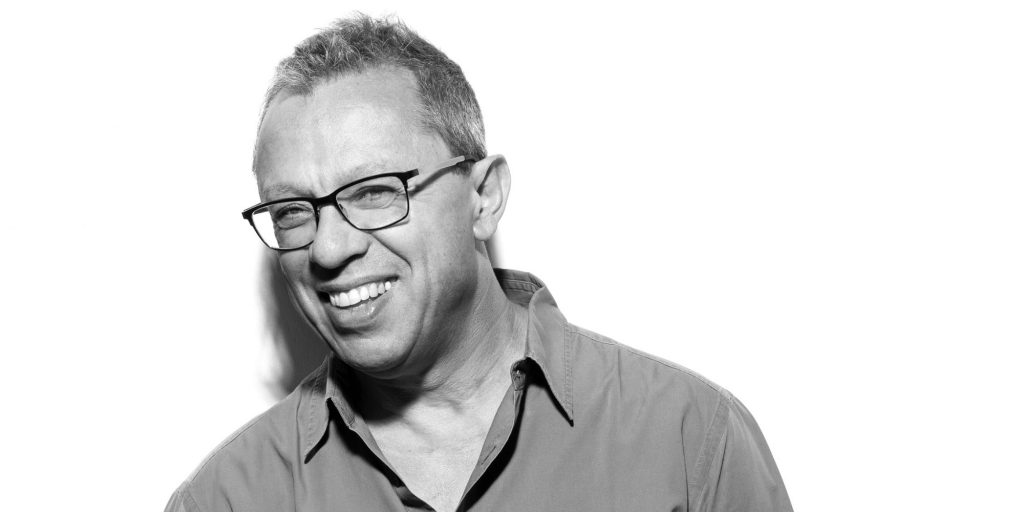Mário João Laginha dos Santos (Lisbon, April 25, 1960) is a Portuguese jazz pianist and composer.
For Mário Laginha, making music is above all an act of sharing. And he has done so with strong musical personalities: Maria João, Bernardo Sassetti and Pedro Burmester. In the three duos, their creativity is evident, a great rhythmic solidity, an enormous harmonic and melodic richness.
He created the Trio de Mário Laginha, with bassist Bernardo Moreira and drummer Alexandre Frazão. This is, perhaps, the formation that is closest to Jazz, even if not with a conventional style; and is also part of the trio LAN, with saxophonist Julian Argüelles and percussionist Helge Andreas Norbakken.
Mário Laginha participated in the most important Jazz festivals in the world, namely the Montreux Jazz Festival, North Sea Festival, San Sebastian Jazz Festival or the Montreal Jazz Festival.
He has also proven his talent and inspiration alongside such exceptional musicians as Wayne Shorter, Wolfgang Muthspiel, Trilok Gurtu, Gilberto Gil, Lenine, Armando Marçal, Ralph Towner, Manu Katché, Dino Saluzzi, Kai Eckhardt, Julian Argüelles, Steve Argüelles, Howard Johnson or Django Bates.
With enormous versatility and mastery of composition, he has written for formations such as the Big Band of Rádio de Hamburgo, the Orquestra Metropolitana de Lisboa, the Orquestra Filarmónica de Hannover, the Remix Ensemble, the Drumming Grupo de Percussão and the Orquestra Nacional do Porto.
Mário Laginha learned piano in childhood. The idea of pursuing a career as a pianist took shape when he heard Keith Jarrett. He studied piano at the “Louisiana” jazz school in Cascais, directed by Luís Villas Boas, and then at the Academia de Amadores de Música and at the Conservatório de Música de Lisboa, where he had Carla Seixas and Jorge Moyano as teachers, having completed the course in piano with 20 values.
The first professional work took place in the theater, in the play Baal, by Brecht, at Teatro da Trindade. But the serious entry into the world of jazz took place when he joined the quintet of singer Maria João, with whom he recorded two albums in the 1980s: Quinteto Maria João (1983) and Cem Caminhos (1985), with standards and some originals. The duo that years later would form with Mária João resulted in more than a dozen albums and was a strong milestone in the Portuguese music scene.
While playing with Maria João, Mário Laginha created the Sexteto de Jazz de Lisboa, with Carlos Martins, Tomás Pimentel, Edgar Caramelo and the brothers Pedro and Mário Barreiros, with whom he recorded the 1988 LP Ao Encontro. Barreiros brothers also played in a trio.
Mário Laginha invested more and more in his own compositions, moving away from the interpretation of classic jazz and standards. In 1987, with the support of the Gulbenkian Foundation, Mário Laginha’s Decateto premiered during the Jazz em Agosto festival; the compositions and arrangements were wholly his own. That same year, he was considered by critics the best Portuguese Jazz musician.
Over the years, he worked in partnership with other great names in Portuguese music: Pedro Burmester (the December 1993 concert at the Centro Cultural de Belém gave rise to the album “Duetos”), Carlos Bica, José Peixoto and José Salgueiro ( at the time, 1991, known by the group name Cal Viva), João Paulo Esteves da Silva (in 1993 they created the group Almas & Danças).
In 1993 Mário Laginha composed the original music for the soundtrack of the film Passagem por Lisboa by filmmaker Eduardo Geada.
In 1994 he released his first album signed with his name, Hoje. In the same year he left Danças, where he collaborated with Maria João again, in a duo and personal friendship that persist until today. The two recorded several albums and collaborated in theater, cinema and other arts shows.
On June 9, 1995, he was awarded the rank of Officer of the Order of Infante D. Henrique.
In 1999 Mário Laginha began a highly successful collaboration with Bernardo Sassetti. Since then, they have given several concerts and released two albums: Mário Laginha e Bernardo Sassetti (2003), and Grândolas (2004), an album included in the celebration of the 30th anniversary of the 25th of April.
In 2005 he recorded his first solo album, Canções e Fugas.
On January 30, 2006, he was elevated to the rank of Commander of the Order of Infante D. Henrique.
In 2007 he performed live with Pedro Burmester and Bernardo Sassetti, at the CCB (Lisbon), a concert that was released on DVD under the title 3 Pianos. The repertoire includes themes from classical music, modern classical music and themes from the pianists themselves.
In 2008 he played with Bernardo Sassetti and Camané in the show Vadios, at CCB, in a show that combined jazz and fado. He maintains a partnership with Camané, which resulted in the release of the album Aqui Está-se Sossegado, in 2019.
In addition to the work developed with his trio (with Bernardo Moreira, on double bass, and Alexandre Frazão, on drums), with whom he released the albums Espaço (2007) and Mongrel (2010), he recorded two albums on behalf of the LAN trio, with Julian Argüelles and Helge Andreas Norbakken: September (2017) and Atlântico (2020).






Their voices echo the emotions
Singers are artists who make the world more beautiful with their gift.